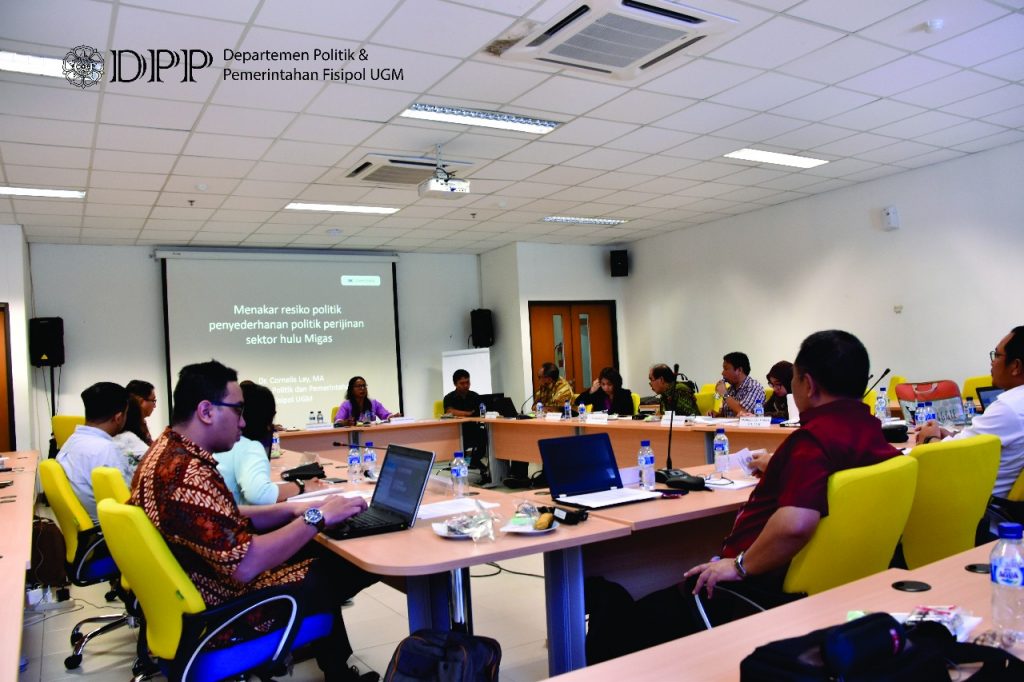Licensing process that takes longer time in upstream oil and gas sector activities has resulted in a less conducive investment climate in this sector. This is partly due to inefficiency in administrative procedures, strong sectoral ego and weak coordination and rent-seeking practices in state institutions authorized to issue permits.
The results of the identification conducted by the Special Unit for Upstream Oil and Gas Business Activities (SKK Migas), there are a total of 373 permits to be passed by for the upstream activities of oil and gas. “From the identification of SKK Migas, it takes an average of eight to ten years, starting from permission application until production can start,” said Didik Sasono as Head of SKK Migas Formalities Division. This slow process also has the potential to give rise to a considerable opportunity lost.
The conclusions are formulated in focus group discussions (FGD) “Simplification of Upstream Oil and Gas Business License Governance” held on Tuesday (05-12). Located at the Faculty Meeting Room of FISIPOL UGM, this FGD was held by UGM Department of Politics & Government (DPP) together with SKK Migas, and attended by academics from legal, political and economic area. Also present were representatives from two Contractor Cooperation Contracts (KKKS), namely Chevron Pacific and Total Indonesia.
Responding to the formulation of upstream oil and gas licensing governance document, Rikardo Simarmata as an agrarian legal expert stated that improvements in governance licensing need to be done in order to reduce licensing costs, improve market distortions and avoid externalities arising from short-term behavior in the utilization of natural resources. Of the 373 stages, SKK Migas itself offers simplification of licensing governance in four clusters, namely engineering norms, safety and security; spatial arrangement, utilization of resources and other infrastructure, and environmental conservation. With this simplification, it is expected that the licensing process will only take one to two years.
Highlighting the simplification of licensing in upstream oil and gas sector governance, Cornelis Lay, head of Research Center for Politics and Government of DPP UGM stated that the formulation of legal rules is important and necessary. However, Cornelis emphasizes the importance of managing political risks. The simplification of licensing is considered to generate resistance from the actors who have been involved in the long process. “Some actors will be resistant, so there is a need for a holding institution,”
Meanwhile, Poppy Ismalina, an economist from FEB UGM, who also attended the discussion, mentioned that the upstream oil and gas licensing regulation can not necessarily be brought to the issue of efficiency. However, she stressed that it does not mean the economic count should be abolished. She also highlighted the importance of regional interests in the upstream oil and gas sector. Ideally, the new regulation governing this simplification ensures a mechanism that contributes financially to the region.
The FGD closed with some input from DPP UGM represented by Amalinda Savirani as Head of Department who also acted as moderator of this discussion. First the importance of sector-based mapping of permits, second mapping of benefits to local residents. “Finally, it is necessary to think about transition scenarios that anticipate problems in the local or cross-sectional sectors that can become obstacles,” concluded Amalinda. (Media Team of PolGov DPP UGM)

